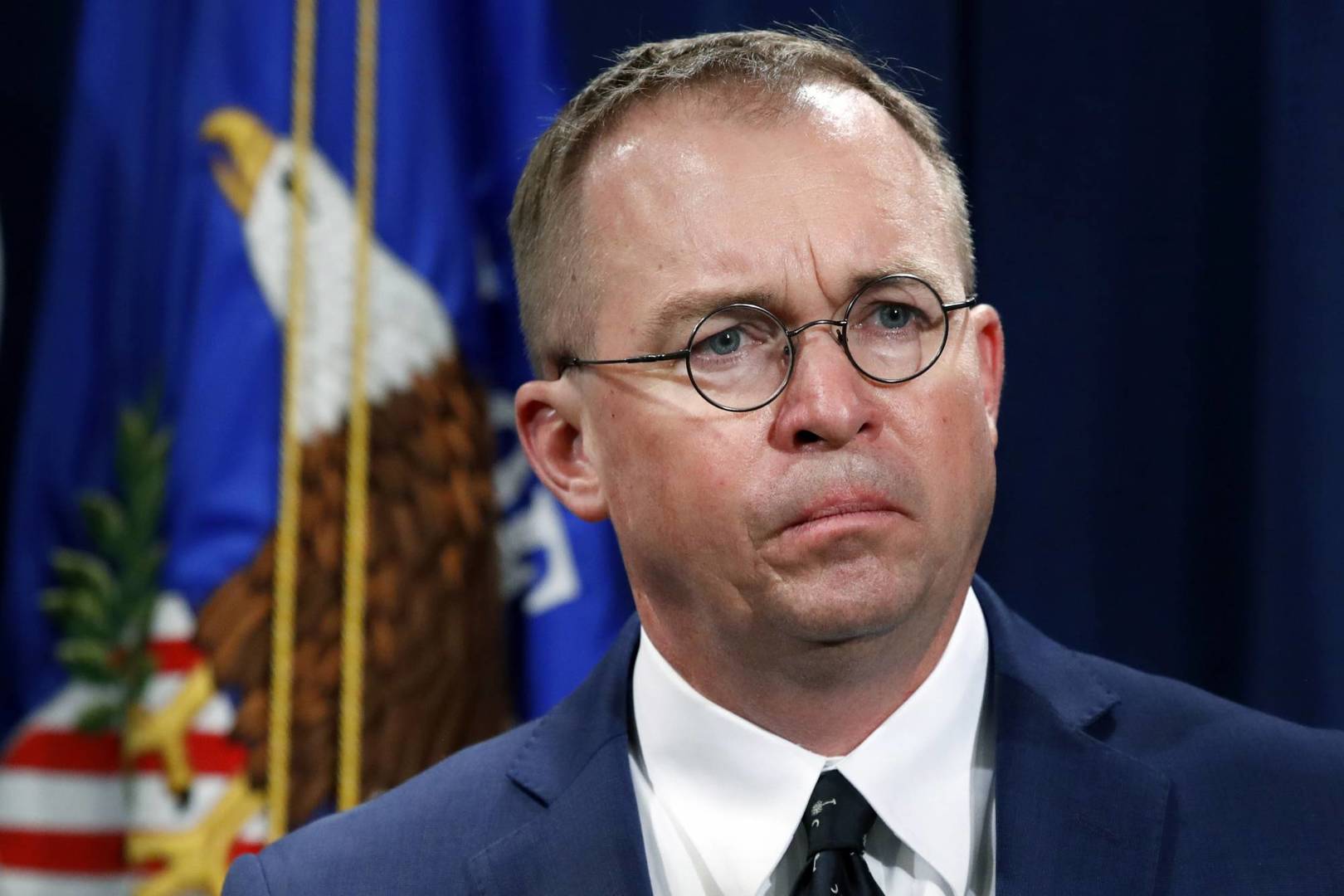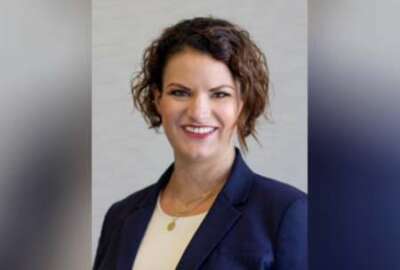
Union: Mulvaney comments confirm agency moves meant to cut
A federal employees union says recent comments by acting White House chief of staff Mick Mulvaney confirm the Trump administration's "grand strategy" to cut the...
TOPEKA, Kan. (AP) — A federal employees union charged Tuesday that recent comments by acting White House chief of staff Mick Mulvaney confirm the Trump administration’s “grand strategy” to cut the federal workforce by relocating agency offices out of Washington.
Mulvaney said last week that the U.S. Department of Agriculture’s plan to relocate several hundred of jobs from Washington to the Kansas City area is “a wonderful way to streamline government.” Speaking to a group of fellow Republicans in his home state of South Carolina, he said it’s “nearly impossible” to fire federal workers but added that many will not move to “the real part of the country.”
Within days of taking office, President Donald Trump declared a hiring freeze, and within months, Mulvaney, as director of the Office of Management and Budget, outlined a plan for reducing the civilian workforce. But he said in his South Carolina remarks that he’s tried to fire workers and “you can’t do it.”
The USDA said in June it would move most of the employees of the Economic Research Service and National Institute of Food and Agriculture partly to bring the two agencies closer to farmers and agribusinesses. The Interior Department has offered a similar rationale for breaking up the Bureau of Land Management’s headquarters and putting employees in 11 western states.
Mulvaney said “the quiet parts out loud,” said Aaron Weiss, deputy director of the Center for Western Priorities, a Denver-based nonprofit critical of the Trump administration’s Interior Department. Weiss sees an “intentional brain drain” to “get rid of expertise across the government.”
“This is part of their grand strategy,” said Dave Verardo, president of the American Federation of Government Employees local that represents the USDA workers. “Reduce government so that people can come into power and do whatever they want without any checks and balances.”
Spokesman John Czwartacki defended Mulvaney’s comments Tuesday as “commentary through a political lens at a political event.” He noted that U.S. Agriculture Secretary Sonny Perdue has said relocating the two agencies’ employees will save money on rent and employee costs, freeing up more money for research.
“If some career bureaucrats would rather quit or retire than move closer to the people they serve, despite knowing that the relocation will allow USDA to spend less money on rent and more on research, then that is indeed a wonderful way to streamline government,” Czwartacki said.
U.S. Interior Secretary David Bernhardt described the Bureau of Land Management move as a “realignment” to “better respond to the needs of the American people.”
“Under our proposal, every Western state will gain additional staff resources,” Bernhardt said in a statement Tuesday. “This approach will play an invaluable role in serving the American people more efficiently.”
Officials in Kansas and Missouri and their congressional delegations were delighted with the USDA’s plans, believing the research agencies to be a good fit for the region.
Related Stories
The USDA says it is not cutting research. Deputy Undersecretary Scott Hutchins said the department has an aggressive hiring plan to fill vacancies.
“Universities have contacted us and asked us, ‘We can help support you and so forth,'” he said. “A lot of groups at this point are starting to rally together to see how we can make sure we do this.”
The agency’s own inspector general’s office concluded this week that the USDA may have violated federal law by moving forward on the relocation without advancing funding approval from Congress. The agency disputed that, contending that the department’s internal watchdog was misinterpreting federal law.
U.S. House Majority Leader Steny Hoyer, a Maryland Democrat who has criticized the relocation plans, said Tuesday in a statement that Perdue “must halt” them. He also said Mulvaney’s comments signal the Trump administration’s “true intentions.”
“This administration’s continued assault on federal employees is part of a broader pattern to undermine the government agencies that serve the American people every day,” Hoyer said in a statement.
Verardo said at least 55 percent of the affected USDA workers — some 330 of them — won’t move. And Laura Dodson, an Economic Research Service employee and union steward, said the USDA’s plans force people who spent years studying agricultural economics to decide between pursuing their careers or uprooting their lives to move to a location that may not be final.
“Morale has never been lower,” she said.
Chad Hart, an economics professor and crop-markets specialist at Iowa State University, said he worries about the loss of institutional knowledge. He said the agencies being moved don’t tend to interact with individual farmers so, “it doesn’t matter if they are 10 miles or 1,000 miles from farmers.”
“You’re losing that expertise you can’t just buy back,” he said.
Jim Myers, a professor at Oregon State University who studies vegetable breeding and genetics, said research grants from the National Institute of Food and Agriculture have done “amazing things” to support his research into new varieties of organic vegetables.
“This is a move to cripple an institution that’s vital to the researchers in the U.S. and ultimately U.S. agriculture,” he said. “It just hollows it out and weakens it.”
___
Knickmeyer reported from Washington. Also contributing were Darlene Superville in Washington; Scott McFetridge in Des Moines, Iowa, and Candice Choi in New York.
___
Follow John Hanna on Twitter: https://twitter.com/apjdhanna .
Copyright © 2025 The Associated Press. All rights reserved. This website is not intended for users located within the European Economic Area.





